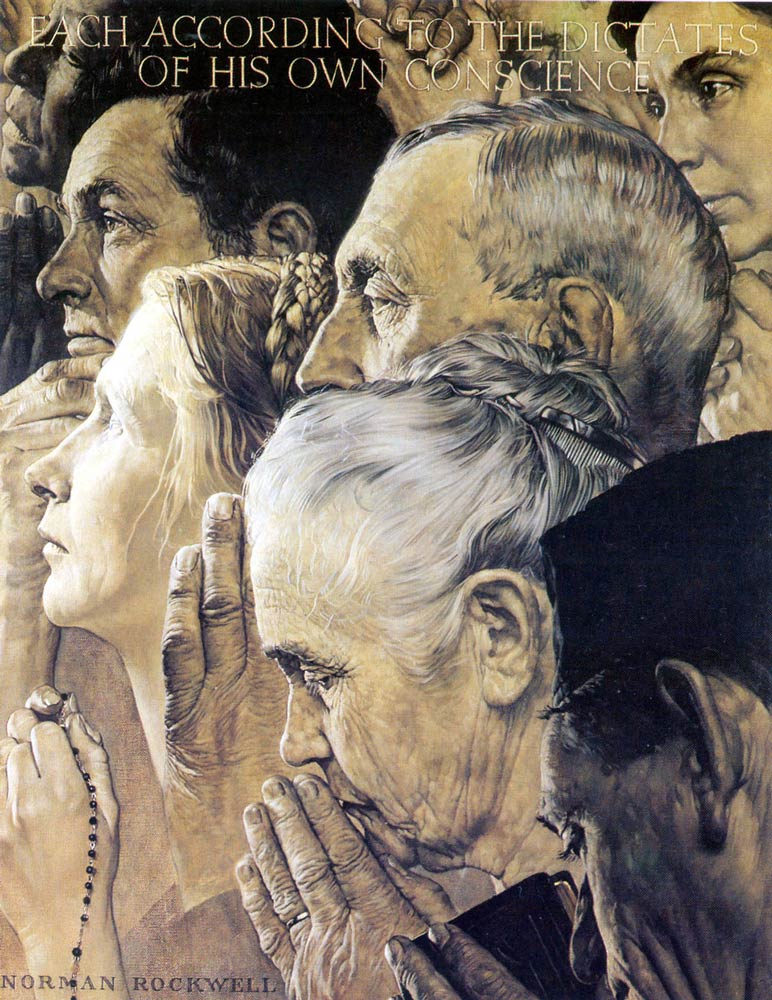Written Testimony for HB 542 as Amended, the Religious Liberty Act submitted to the NH House Judiciary Committee by Ian Huyett, Esq. on behalf of Cornerstone Action March 5, 2021
Cornerstone supports HB 542 as amended. Please note that, in addition to codifying the general Mack protections that were contained in the original HB 440, the amendment removes bill language that referred to “temporary places of worship, such as a home bible study [etc].” The remaining original language can now be found in 546-C:3, I of the amendment.
By incorporating the original HB 440 language, the amendment also helps to add clarity to the original text of the bill. Note, for example, that 546-C:3, III clarifies both of the preceding paragraphs by saying that “[n]othing in this section shall prohibit the state government from requiring religious organizations to comply with neutral health, safety, or occupancy requirements” provided the Mack test is satisfied.
As amended, this bill will do two things. First, the bill will protect churches from being treated worse than other essential services. For example, the bill would prohibit churches from being totally closed by the government when services such as grocery stores and hospitals are still operating. To religious people around the world, religious communities are of fundamental and eternal importance. Our federal and state constitutions appropriately provide unique protections for religious exercise that are not accorded to other kinds of activities and organizations. Additionally, to close churches while permitting other essential services to operate would mean taking the position that the beliefs of those churches are false. This is not the government’s role.
Importantly, this does not mean that the government cannot impose neutral capacity restrictions, mask mandates, or other kinds of rules that affect churches. Although any restriction that substantially burdens religious exercise could be subject to a Mack-type challenge, that is already the law in New Hampshire under the Mack decision.
This brings me to the second purpose of the bill as amended. The bill codifies the result of the New Hampshire Supreme Court’s Mack decision in state statute. If there is any doubt about what Mack actually held, I refer you to page 19 of that decision as linked below. There, the Court explained the holding simply: “[U]nder Part I, Article 5, once an individual establishes that the government action substantially burdens his or her sincere religious practice… the burden shifts to the State to show both that the government action is necessary to achieve a compelling government interest, and is narrowly tailored to meet that end.” State v. Mack, 2020 N.H. LEXIS 206, *42. Compare this to the language in 546-C:2, I of the amendment. It is exactly the same protection.
One common objection to the free exercise of religion is the idea that it will somehow make every person a “law unto himself” and allow people to nullify all kinds of ordinary laws at will. But this is not borne out by the facts. The New Hampshire Supreme Court agrees: on page 21 of Mack as linked below, the Court said “[t]he compelling state interest balancing test has proven to be a workable standard in free exercise cases.” Id. at *45. In fact, religious exercise was accorded protections of this kind everywhere in the United States, under federal constitutional law, from 1943 until 1990. This did not mean that Americans were allowed to evade taxes, run red lights at will, and so on under the guise of religion.
The evidence shows that free exercise rights do not lead to courts being beset with frivolous or bogus claims. In a 1963 U.S. Supreme Court case, a government entity argued that free exercise rights would lead to the “filing of fraudulent claims by unscrupulous claimants feigning religious objections.” Sherbert v. Verner, 374 U.S. 398, 407 (1963). The Supreme Court rejected this argument, saying: “there is no proof whatever to warrant such fears of malingering or deceit as those which the respondents now advance.” At least two factors likely help explain this: 1) there are deterrents which dissuade many lawyers from bringing frivolous or other bad faith claims, and 2) many judges are capable of detecting and disposing of frivolous claims. And, in any case, the Mack test has already been the law in New Hampshire for over two months. In that time, we have not seen it cause chaos in the streets.
Thank you for your time; I would be happy to answer or discuss any further questions at the email address above.
See Also: The New Hampshire Supreme Court Has Just Revolutionized Religious Liberty
Footnotes:
[1] You can read the decision here: https://law.justia.com/cases/new-hampshire/supreme-court/2020/2019-0171.html
[2] See Murdock v. Pennsylvania, 319 U.S. 105, 111-116 (1943) (Holding that law governing door-to-door solicitation could not constitutionally be applied to Jehovah’s Witnesses evangelists because “[t]he constitutional rights of those spreading their religious beliefs through the spoken and printed word are not to be gauged by standards governing retailers or wholesalers of books” and “the present ordinance is not narrowly drawn to safeguard the people of the community in their homes against the evils of solicitations.”).


